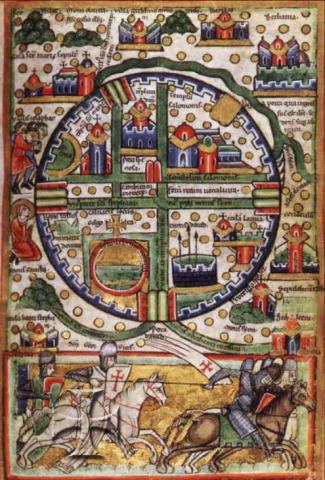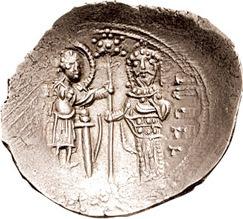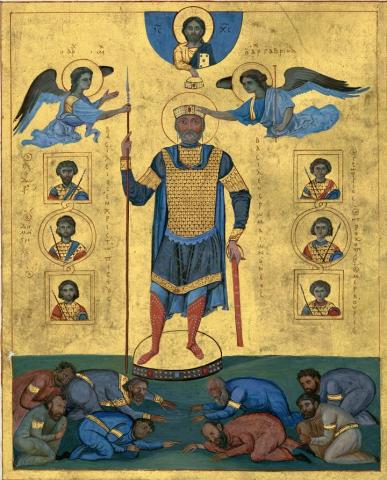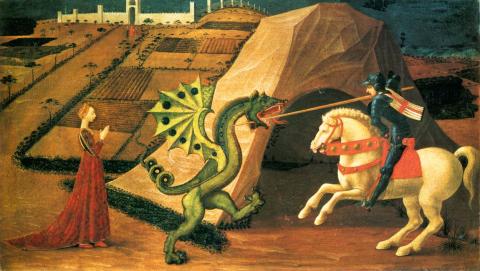Kerbogah Tries to Retake Antioch
[9.29.4] Exībant quoque dē montāneīs innumerābilēs exercitūs, habentēs equōs albōs, quōrum vēxilla omnia erant alba. Videntēs itaque nostrī hunc exercitum, ignōrābant penitus quid hoc esset et quī essent; dōnec cognōvērunt esse adiūtōrium Chrīstī, cūius ductōrēs fuērunt sānctī Georgius, Mercurius et Dēmētrius. Haec verba crēdenda sunt, quia plūrēs ex nostrīs vīdērunt.
[9.29.5] Turcī autem quī stābant in parte maris, videntēs quod nōn possent sufferre amplius, mīsērunt ignem in herbam, ut videntēs, illī quī erant in tentōriīs fugerent. At illī cognōscentēs illud signum, arripuērunt omnia honōrābilia spolia, et fūgērunt. Nostrī vērō paulātim mīlitābant ubi maxima virtūs eōrum erat, scīlicet ad tentōria illōrum. Dux Godefridus, et Flandrēnsis comes, et Hugō Magnus, equitābant iuxtā aquam, ubi virtūs illōrum erat. Istī prīmitus, signō crucis mūnītī, ūnanimiter invāsērunt illōs. Videntēs hoc, aliae aciēs similī modō invāsērunt illōs. Exclāmāvērunt autem Persae et Turcī. Nōs itaque, invocantēs Deum vīvum et vērum, equitāvimus contrā illōs; et in nōmine Iēsu Chrīstī et Sānctī Sepulchrī incēpimus bellum, et, Deō iuvante, dēvīcimus eōs.
notes
(June 1098) At this critical moment a miraculous army appears in support of the crusaders, led by three warrior saints. The Turkish advance guard retreats and gives the signal, but the main Turkish army is attacked and defeated, with God's help.
9.29.4
dē montāneīs: either this new army has come down from the mountains and is on the ground with the crusaders, or "from the mountains" means, in effect, "up in the sky."
sānctī Georgius, Mercurius et Dēmētrius: St. George, St. Mercurius, and St. Demetrius, all soldier-saints. St. George has often been depicted with a crusader cross (the "Cross of St. George")
9.29.5
mīsērunt ignem in herbam, etc.: This was the Turkish plan described in 9.29.2.
illī quī erant in tentōriīs: the Turks in camp.
honorābīlia spolia: “valuable possessions.”
ubi maxima virtūs eōrum erat, scīlicet ad tentōria illōrum: “where their (the Turks’) greatest strength was, namely in their camp.”
similī modō: "in a like manner, similarly."
dēvīcimus eōs: use of the first person suggests the author was a participant.
vocabulary
9.29.5
sufferō sufferre sustulī sublātum: to sustain pressure, withstand
prīmitus: first




